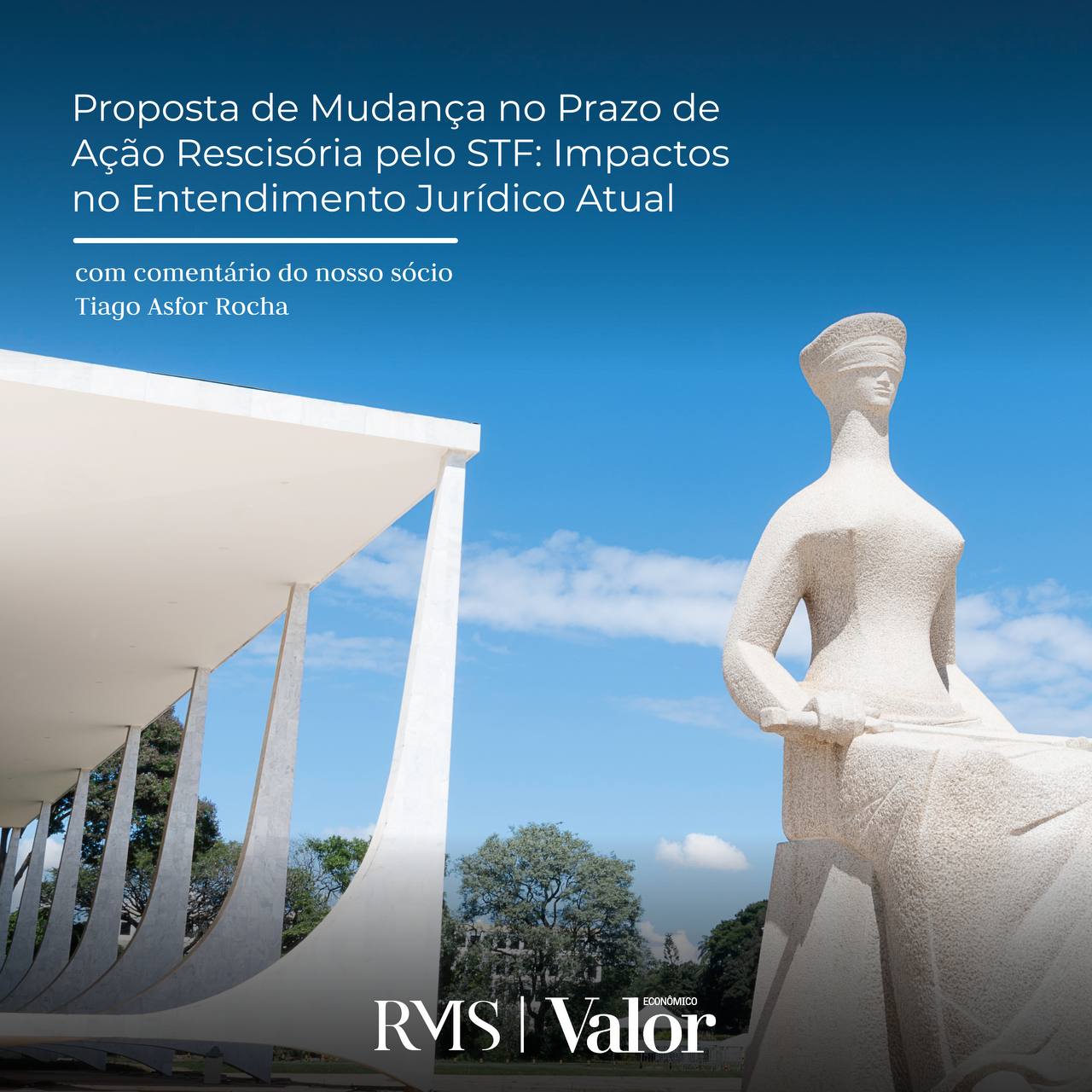
XIII Fórum de Lisboa: Sócio fundador do RMS Advogados, Anastacio Marinho, participou do evento de tema ”O mundo em transformação – Direito, Democracia e Sustentabilidade na Era Inteligente”.
Sorry, this entry is only available in PT.

The object of the normative act includes the holding of hearings and sessions by videoconference and telepresential, as well as the communication of procedural acts by electronic means.
The National Council of Justice (CNJ) unanimously approved, in November 2020, the text of the resolution that regulates the digital fulfillment of procedural act and court order. The rules for participation in videoconferencing, telepresence hearing, communication of procedural acts and the information that must be provided by the interested parties and third parties are stipulated, together with special rules for the participation of the arrested defendant, outside the headquarters of the District or at a location far from the Judicial Subsection, in videoconference
The object of the normative act includes the holding of hearings and sessions by videoconference and telepresential, as well as the communication of procedural acts by electronic means. The first and second jurisdictional units of the state, federal, labor, military and electoral courts are covered, in addition to the Superior Courts, with the exception of the STF.
Recognizing operational efficiency, alignment and integration as strategic issues for the Judiciary, the resolution aims to reduce the time taken to process judicial determinations, ensure greater efficiency in the practice of acts, allow greater quality in the production of evidence and decrease the prescription in criminal proceedings.
In addition, the vote of Counselor Rubens de Mendonça Canuto Neto expressly acknowledged the contribution that technology can offer to the justice systems. This is because the “introduction of technological methods to assist in conflict resolution” expands access to justice and guarantees speed and efficiency in the judicial response to the demands received by the Judiciary.
Participation in videoconferencing (remote communication carried out in environments of judicial units) over the internet will occur in a judicial unit different from the seat of the court that presides over the hearing or session, or even in a prison establishment. Offended, witnesses and experts will be questioned and will provide explanations by videoconference, as well as personal testimony or interrogation by the party who lives far from the headquarters of the court, both at the headquarters of the court of their domicile.
Lawyers, public and private, and members of the Public Ministry may request their own participation or that of those represented by videoconference. The granting depends on technical feasibility and judgment by the magistrate. In the event of rejection or failure to analyze the application, it is the burden of the applicant to appear at the seat of the court.
Telepresential hearings (held from a physical environment external to the judicial units) will be determined by the court, at the request of the parties, if convenient and feasible. It is also possible to determine office in cases of: urgency; replacement or appointment of a magistrate with a different functional seat; task force or specific project; conciliation or mediation; temporary unavailability of the forum, public calamity or force majeure. The opposition must be substantiated and submitted to judicial control.
Participation in these acts is subject to general rules that regulate the questioning of witnesses, testimony without the presence of one of the parties to the process, guarantee of publicity, except in cases of secrecy. In the same way, the normative act determines the recording of the telepresential or video conference calls that are equated to the face-to-face meetings, and the liturgy inherent to these acts must be fulfilled, with the possibility of repetition, at the judge’s discretion and in a reasoned decision.
In the cases in which the summons and subpoena by mail, court clerk, clerk or head of the secretariat are applicable, the act may be performed electronically, ensuring that the recipient is aware of its content. Compliance must be documented by proof of delivery and receipt, indicating the date and time of the occurrence, or a detailed certificate of how the recipient was identified and became aware of the content of the act.
Finally, in the first intervention in the records, the parties and interested third parties must inform electronic addresses to receive notifications and subpoenas. Subjects who require a citation or subpoena must provide the necessary data for electronic communication through messaging applications, social networks and electronic correspondence.
By: Wilson Sales Belchior

Sorry, this entry is only available in PT.

Sorry, this entry is only available in PT.